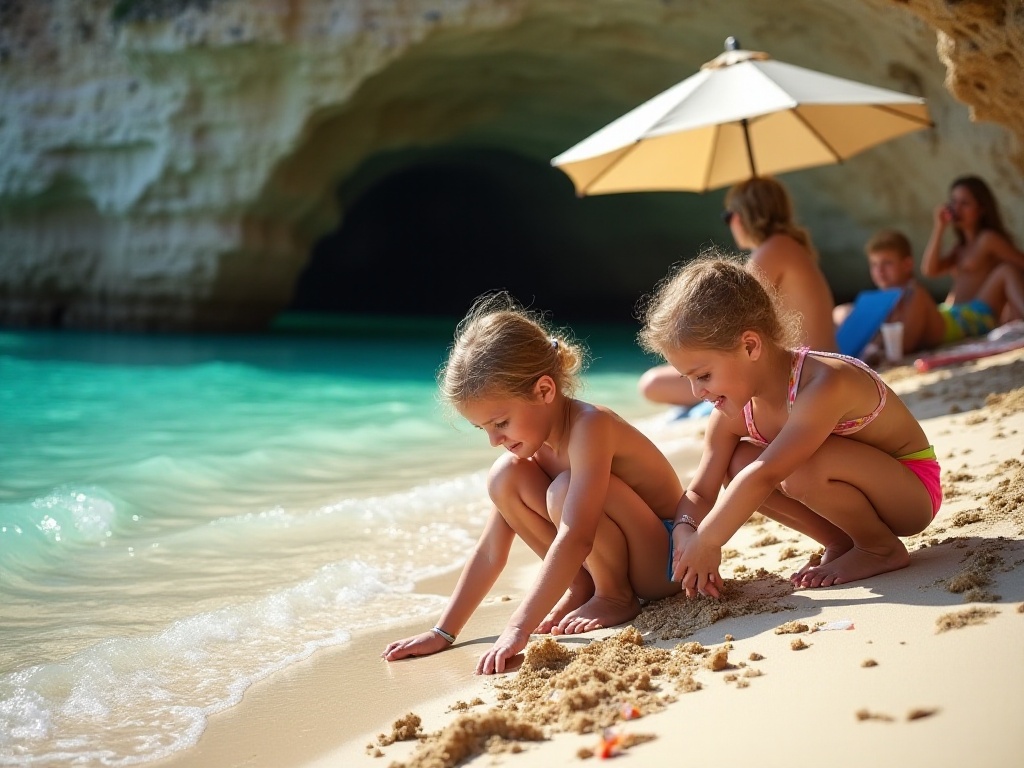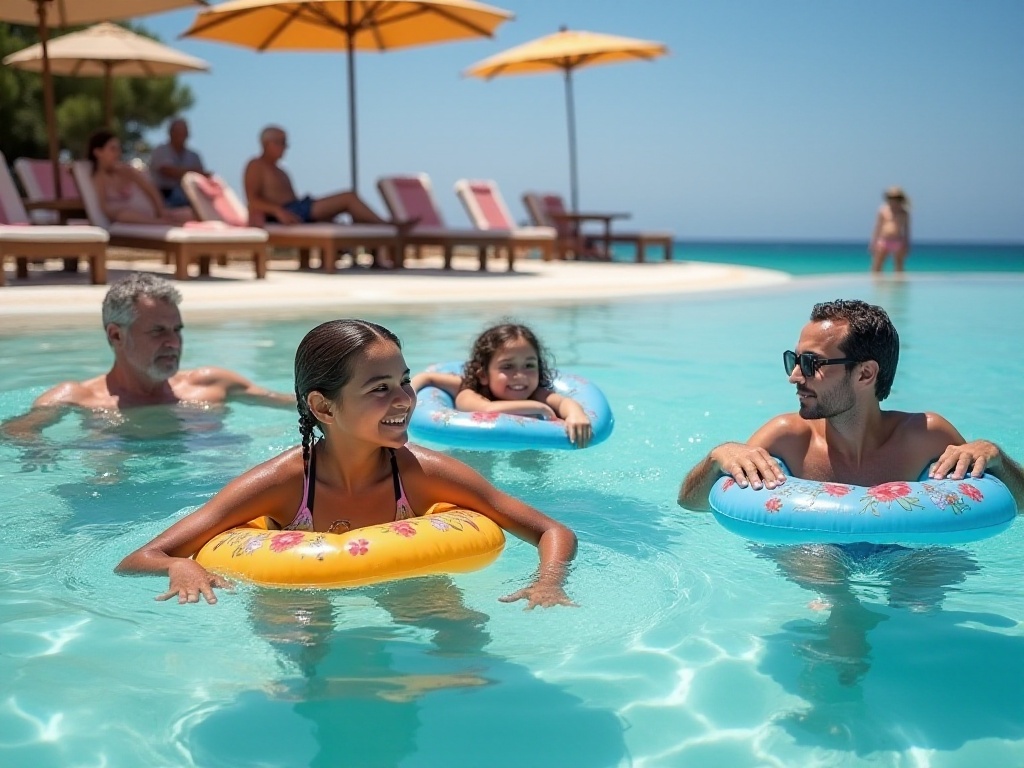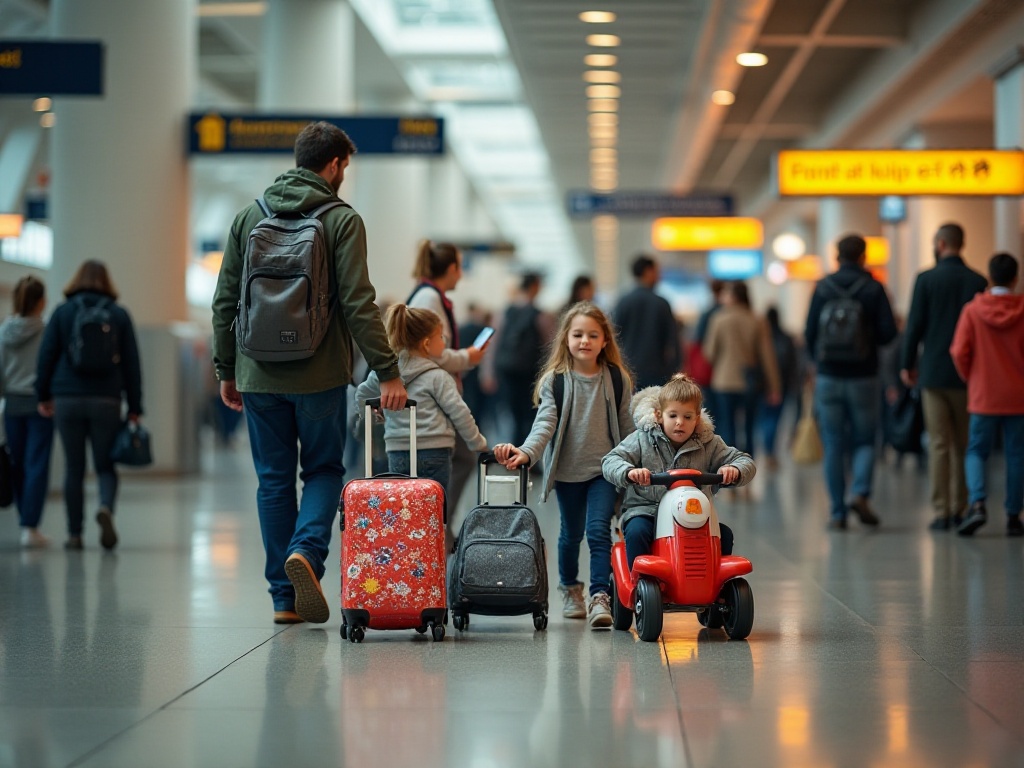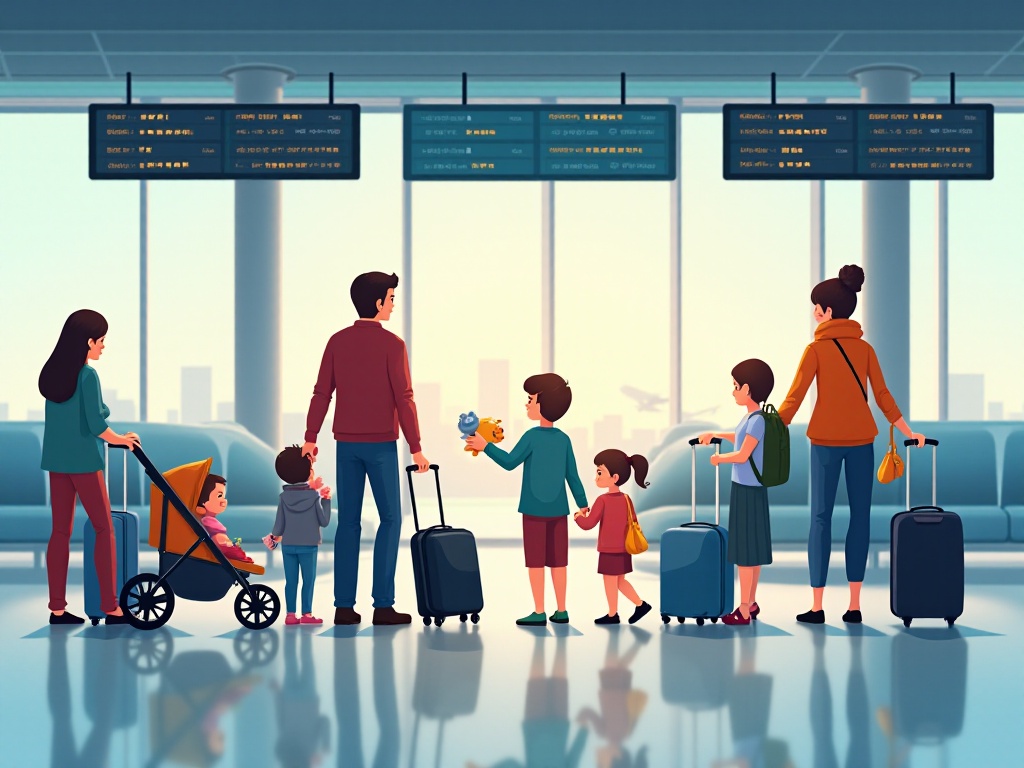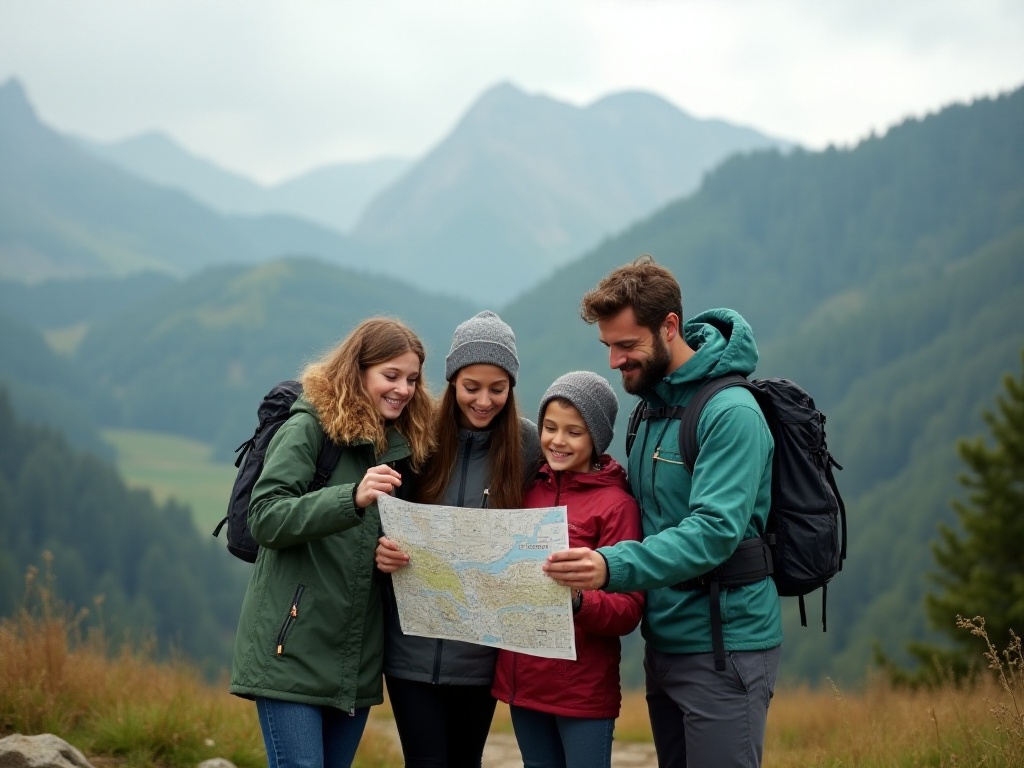Introduction
Hi everyone! As a post-95 family travel blogger, I've traveled extensively throughout China and abroad with my child. To be honest, when I first started traveling with my child, I was overwhelmed and anxious. But after years of experience, I've developed a reliable system. Today I'm sharing all my experience with you, and I believe after reading this article, you'll be able to easily plan a perfect family trip.
Infants and Toddlers
I remember my first trip to Japan with my three-month-old daughter - it was quite intense! I was like a mobile convenience store, with my backpack stuffed with formula and diapers, pushing a stroller while dragging a suitcase, worried about bumping into everything. But after several real-world experiences, I discovered that traveling with infants isn't so scary - the key is knowing the right approach.
Let's first talk about itinerary planning. An infant's biological clock is extremely important - don't think "it's okay if their schedule is a bit irregular since we're on vacation." I made this mistake before, and as you can imagine, the baby was completely out of sorts, crying and fussy. Later, I strictly controlled our daily schedule, basically following a "two plus one" model: one attraction in the morning, one in the afternoon, with a mandatory two to three-hour lunch break in between.
Take our Kyoto itinerary for example. We'd leave around 9 AM, leisurely visit Kiyomizu Temple, view cherry blossoms, take photos. By 11:30, we'd return to the hotel for the baby's nap. After the baby was well-rested around 2-3 PM, we'd go explore Ninenzaka and Sannenzaka. With this rhythm, the baby wouldn't get too tired, and adults could enjoy themselves too.
As for essential items, there are quite a few. Besides regular formula, diapers, and wipes, sunscreen and insect repellent are absolute musts. My baby's skin is particularly delicate and could get red even in temperate regions like Japan. So now I always bring sun hats, UV protection clothing, sunscreen, and parasols. Once in Okinawa, I met a mother with a three-month-old who hadn't prepared for sun protection, resulting in her baby crying intensely from sunburn, forcing them to end their trip early.
Stroller selection is also crucial. I recommend choosing a lightweight, foldable one that can be taken directly onto the plane. After trying several strollers, I found that ones that can be folded with one hand are most practical. They're really convenient in crowded places like subway stations and shopping malls. Plus, many strollers now come with sun canopies and storage baskets, which are handy for quick errands like buying fruit.

School-Age Children
When children are 6-12 years old, it's both delightful and challenging. The good part is that children this age have their own thoughts and can communicate; the challenging part is that they're very forgetful and have boundless energy - they can't sit still.
My "Rule of Three" has saved me many times. Prepare three sets of all important items and store them in different bags. For example, put one set of spare clothes in the suitcase, one in the carry-on, and one in the backpack. This way, if one bag is lost, you won't be in a panic. Also, choose quick-drying materials for clothes for easy drying.
Entertainment planning is truly an art. Last year when I took my son to Tibet, we spent nearly 48 hours on the train. I specially prepared a "surprise bag" filled with small toys, drawing books, stickers, puzzles, and a tablet (loaded with cartoons and educational games). Bringing out a new toy every two or three hours kept the child's attention focused on fresh things, and they never complained about being bored.
For choosing attractions, children this age particularly enjoy interactive places. For example, science interactive areas in museums, zones where you can feed animals in zoos, and experience projects in theme parks. I've found that letting children truly participate is much more interesting than just sightseeing.
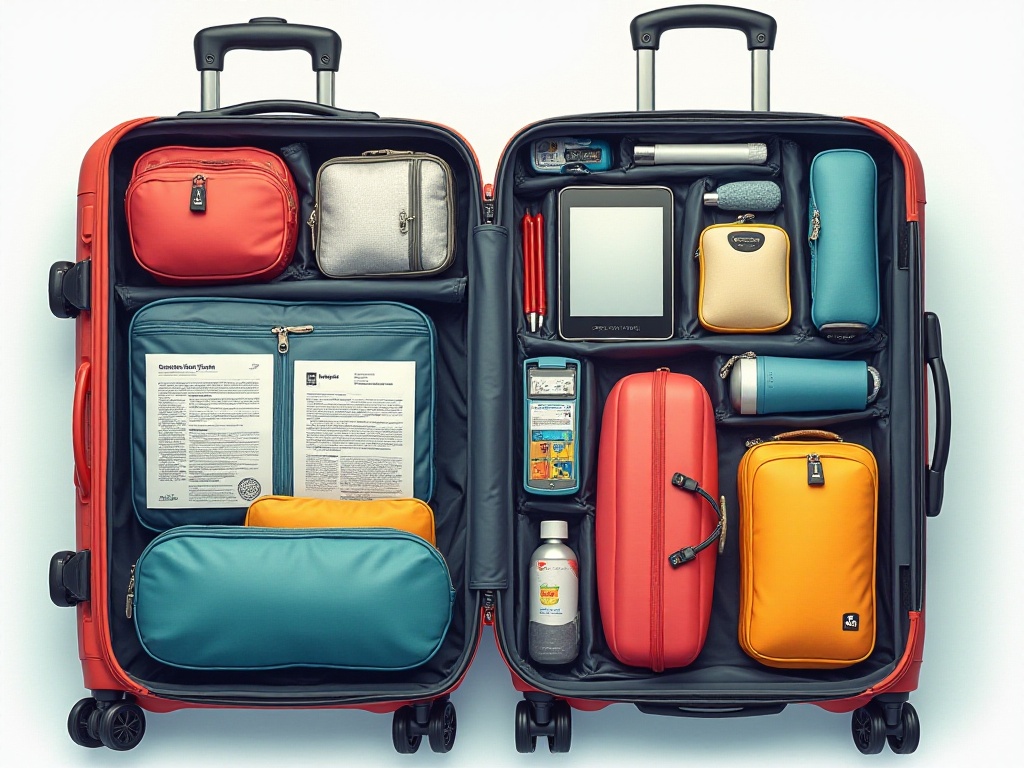
Teenagers
Teenagers are like small bombs, ready to explode at any moment. They have their own ideas and care greatly about their peers' opinions. So in travel planning, it's essential to fully consider their feelings.
From my experience, it's very important to involve teenagers in trip planning. When I took my daughter to Korea last year, I let her plan the food map. To my surprise, she not only thoroughly researched Seoul's popular restaurants but also learned a lot about Korean food culture. In the end, we were like food hunters, checking off restaurants one by one, not only enjoying good food but also strengthening our relationship.
Shopping is also a major focus for children this age. It's advisable to discuss shopping budgets with them before departure, helping them learn to plan expenses. My daughter is very good at budgeting, knowing what's more economical to buy domestically versus abroad.

Adult Children
When children become adults, family travel becomes more like gathering with friends. The focus at this stage is finding common interests so everyone can enjoy themselves.
I particularly admire one friend's family tradition - they choose a destination for family travel every year. Each person selects a place they most want to visit or something they most want to do, and everyone completes it together. For example, when her son liked extreme sports, they went bungee jumping in New Zealand; when her daughter was interested in food, they learned to make pizza in Italy; when mom loved art, they visited museums in Paris. This approach considers everyone's interests while strengthening family bonds.
Pre-Trip Preparation
After discussing the characteristics of different age groups, let's talk about specific preparations. I can responsibly say that 90% of travel problems occur during the preparation phase. So this part is particularly important and shouldn't be taken lightly.
Let's start with basic research. I suggest beginning to collect destination information at least 3 months in advance. There's so much information online now that just reading travel guides can be overwhelming. My suggestion is to focus on the following aspects:
-
Child-friendly attractions. Consider safety, entertainment value, and educational significance. For example, in Japan, besides must-visit places like Disneyland, we also visit interactive museums where children can learn while playing.
-
Restaurant selection. Research local specialties and which restaurants are suitable for children. I usually check reviews on Dianping or TripAdvisor, paying special attention to hygiene conditions and whether they offer children's meals.
-
Accommodation location. Consider transportation convenience and whether there are nearby convenience stores, pharmacies, and other facilities. If traveling with young children, it's best to choose hotels near subway stations for easy travel.
-
Weather conditions. The same place can offer completely different experiences in different seasons. For example, in Hokkaido, you can see lavender in summer and ski in winter, so choose the appropriate time based on your needs.

Final Thoughts
Honestly, traveling with children is a particularly meaningful experience. During travel, you'll discover many different sides of your children. A usually introverted child might become very lively during travel; a usually willful child might learn to consider others. These are experiences that are hard to come by in daily life.
After each trip, I have my children write a travel journal or draw some pictures to record the details of the journey. Looking back at these after a few years brings a wonderfully warm feeling. So don't let the challenges of traveling with children stop you from trying - take that first bold step!



